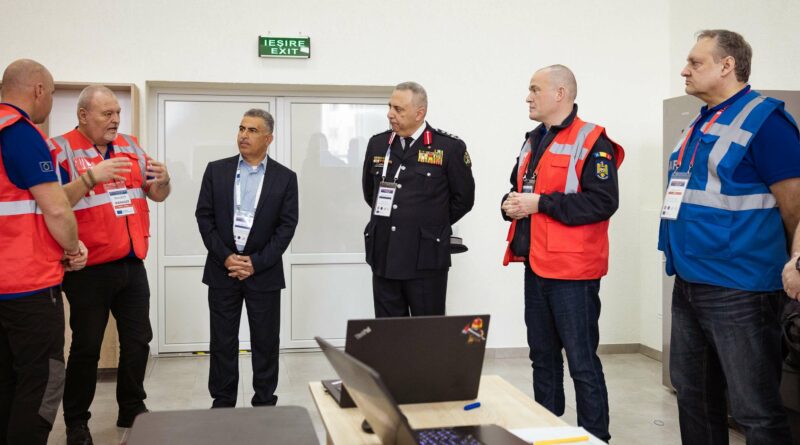Main Tasks in Managing Multinational Projects
Project managers are tasked with the responsibility of planning, organising, and executing projects within a given set of constraints. However, they often encounter various challenges that can impede the successful delivery of projects. Multinational projects have become increasingly common. With organisations expanding their operations across borders, project managers are faced with unique challenges in managing projects that involve teams, stakeholders, and resources from different countries. Successfully navigating these challenges requires a deep understanding of cultural, logistical, legal and communication complexities.
Stakeholder Management: Multinational projects involve multiple stakeholders with diverse interests and expectations. One of the primary challenges in project management is effectively managing stakeholders. Projects involve multiple individuals, groups, and organisations with diverse interests, expectations, and communication styles. Project managers must navigate the complexities of managing stakeholders spread across various geographical locations and cultural backgrounds. They must identify and engage with stakeholders proactively, ensure clear communication channels, and manage conflicting interests. Building strong relationships, fostering effective communication, and understanding stakeholder priorities are critical for successful stakeholder management. Regular updates, proactive engagement, and addressing concerns on time can help gain stakeholder participation and support.
Scope Creep: Scope creep refers to the uncontrolled expansion of project scope and activities beyond its original boundaries. It can result from changing requirements, lack of clarity, or insufficient stakeholder involvement. Project managers must carefully define the project scope, should establish change control processes, and engage stakeholders in scope discussions. It may help if the project manual clearly defines the project and the WBS (work breakdown structure) as well as roles and responsibilities. Regularly reviewing and validating project requirements with all stakeholders can reduce the risk of scope creep.
Communication and Collaboration: Effective communication and collaboration are vital for project success but are also frequent challenges in project management. However, language barriers, time zone differences, and varying communication preferences can hinder clear and efficient communication when working with multinational teams. Poor communication will lead to misunderstandings, delays, and decreased productivity. Project managers must establish clear communication channels, foster a collaborative work environment, and facilitate effective information sharing among team members. Utilising project management tools, conducting regular team meetings, and promoting transparency should enhance communication and collaboration.
Cultural Diversity: One of the most significant challenges in multinational project management is dealing with diverse cultures. Different countries even in Europe have distinct work practices, communication styles, decision-making processes, and business etiquette. Project managers must be sensitive to these cultural differences to foster collaboration and maintain a harmonious work environment. It is crucial to invest time in understanding the cultural nuances of each team member’s background and adapt management approaches accordingly.
Logistics: Managing multinational projects often involves coordinating activities across different locations, time zones, and regulatory frameworks. The logistical complexity can make synchronising project timelines, allocating resources, and ensuring consistent project deliverables challenging. Robust project planning and tracking mechanisms that account for these complexities must be established. Utilising project management software, creating detailed project schedules, and establishing clear reporting channels can streamline activities and enhance visibility across the project.
Resource Allocation: Managing project resources efficiently is a crucial aspect of successful project delivery. Project managers must contend with limited budgets, time constraints, and the availability of skilled personnel. Balancing resource allocation across different tasks and team members requires careful planning, coordination and execution. By conducting a thorough resource analysis, developing realistic project schedules and budgets, and fostering a culture of collaboration, project managers can optimise resource allocation.
Risk Management: Every project entails risks that can potentially impact its success. Identifying, assessing, and mitigating risks are critical responsibilities of project managers. However, challenges arise when risks are unidentified or underestimated, leading to project delays, budget overruns, or even failure. Project managers should establish a robust risk management framework, including risk identification techniques, risk assessment tools, and contingency plans. Regular risk monitoring and proactive communication with stakeholders can minimise the impact of risks.
Change Management: Projects often introduce changes within organisations, affecting processes, roles, and Resistance to change can impede project progress and negatively impact stakeholder engagement. Project managers need to anticipate and address resistance through change management strategies. This includes communicating the benefits of the change, providing support, and involving stakeholders in the change process.
Legal and Regulatory Compliance: Complying with legal and regulatory requirements is paramount when managing multinational projects. Each country has its own set of laws, regulations, and standards that project managers must navigate. Familiarity with local regulations, engaging legal counsel when necessary, and conducting thorough risk assessments can mitigate legal and compliance risks. Project managers have to ensure that all project activities align with relevant regulations and establish clear governance frameworks to ensure compliance throughout the project lifecycle.
Conclusion: Managing multinational projects is undoubtedly a complex endeavour, demanding a diverse set of skills, experience and a keen understanding of cultural, logistical, and communication challenges. By proactively addressing stakeholder management, scope creep, communication and collaboration, cultural diversity, resource allocation, risk management, and implementing effective communication strategies and change management, project managers can enhance their ability to deliver successful projects. Adapting to these challenges with effective management strategies and continuous learning is essential to thrive in their roles and achieve project objectives. Embracing these challenges as opportunities for learning should lead to enhanced project outcomes and foster stronger international collaborations.
My insights as a Project Manager, working in multinational EU Civil Protection Projects
